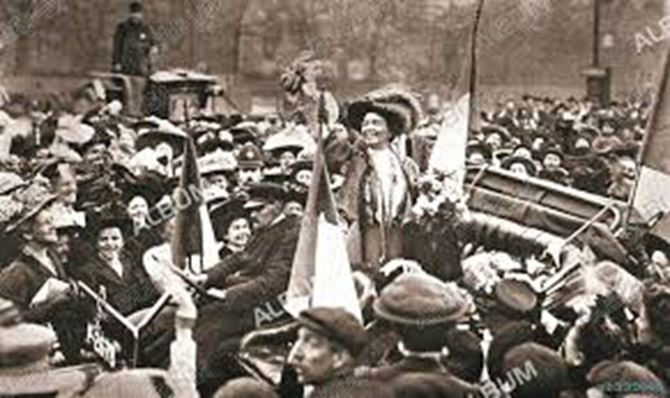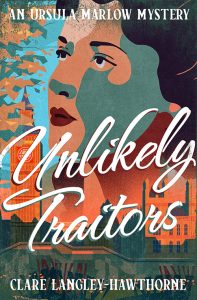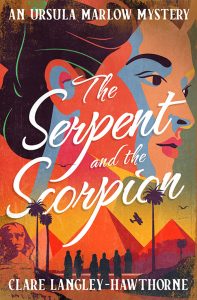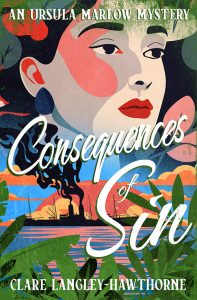
In my second Ursula Marlow book, The Serpent and The Scorpion, I allude to the schism that occurred within the Women’s Social and Political Union (WSPU) in 1912 over the issue of militancy. While conducting research in London last year I visited the Women’s library in London’s East End and pored over microfiche of the WSPU’s newspaper Votes for Women for 1912 to get a feel for how the WSPU itself reported the events of that year.
The WSPU was founded by Emmeline Pankhurst in 1903 and by 1912 two of the union’s most famous patrons, Emmeline and Frederick Pethick Lawrence, were at odds with Mrs. Pankhurst over the escalation of militancy. They were concerned that the WSPU’s increasing use of arson and other attacks on private property were turning the tide of public sympathy against the WSPU’s main cause – female suffrage. By the summer of 1912, Christabel, Mrs. Pankhurst’s daughter and an extremely charismatic leader within the WSPU, was in exile in Paris, having fled a police raid of the WSPU headquarters in Clement’s Inn. Emmeline Pankhurst was in prison for her participation in the window-smashing in London’s West End that occurred just a few days earlier. Following the police raid Mrs. Pankhurst and the Pethick Lawrences were charged with conspiracy to commit malicious damage. They went on trial in May 1912, were convicted and sent to prison – Mrs. Pankhurst and Mrs. Pethick Lawrence to Holloway prison (where they received a rapturous welcome from fellow suffragette inmates), Mr. Pethick Lawrence to Brixton prison. All three went on hunger strike and endured repeated forcible feedings.
After their release, the Pethick Lawrences argued against further attacks on private property and, while on holiday in Europe and Canada, Emmeline and Christabel Pankhurst initiated their campaign to oust the Pethick Lawrences from the WSPU. The success of this campaign reveals the tremendous power both Mrs. Pankhurst and her daughter Christabel exerted over the WSPU (in contrast with Mrs. Pankhurst’s other daughters, Adela and Sylvia, who expressed their own concerns over the escalation of militancy.)
This tumultuous time offers insight into not only the political machinations within the WSPU but also the zeal with which both Emmeline and Christabel Pankhurst pursued their quest for militant action. The WSPU newspaper Votes for Women , owned by the Pethick Lawrences, was produced throughout 1912 and documents not only the extent to which WSPU members were imprisoned and forcibly fed, but also the level of propaganda used to quell any dissent within the WSPU ranks. There are, not surprisingly, no articles debating the issue of militant action and certainly no opinions expressed that differed from the sanctioned ‘Pankhurst view’.
The expulsion of the Pethick Lawrences represents a turning point for both the WSPU and the newspaper Votes for Women. In the edition dated 4 October 1912 the newspaper merely states that the Pethick Lawrences could no longer support the new militant policy and were therefore splitting from the WSPU. The truth was that their expulsion came as a complete shock to them. The first they heard of it was when they returned from their holiday (told by a friend as they stepped off the boat from Canada.) By this time, Christabel Pankhurst had already established an alternative newspaper to Votes for Women called The Suffragette which went into print as soon as the Pethick Lawrences were expelled.
Despite all they had done for the WSPU after their expulsion the Pethick Lawrences never saw or heard from Christabel or Mrs. Pankhurst again. As Frederick Pethick Lawrence wrote, Emmeline and Christabel Pankhurst shared one outstanding characteristic “their absolute refusal to be deflected by criticism or appeal one hair’s breath from the course which they had determined to pursue.” I can only imagine the shock waves that must have reverberated within the WSPU following the expulsion of the Pethick Lawrences. What must it have been like to be a member starting to question the validity and usefulness of militant action? The pursuit of an increasingly militant campaign did cause some influential and wealthy women to withdraw their support for the WSPU and I think it is a fascinating time to research as the suffrage movement became even more polarized over the issue of militancy.
Emmeline Pankhurst spoke at the Albert Hall just days after the expulsion renewing her call for action. “Be a militant in your own way,” she said. “Those of you who can break windows – break them…And my last word is to the Government: I incite this meeting to rebellion! I say to the Government: You have not dared to take the leaders of Ulster for their incitement to rebellion, take me if you dare; but as long as men, rebels and voters are at liberty, you will not keep me in prison!”
And so, in 1912 the WSPU’s militant pursuit of female suffrage was firmly set in motion. The following year there were bomb and arson attacks across Britain, but the question still remains did Emmeline and Christabel’s actions help or hinder their cause?



